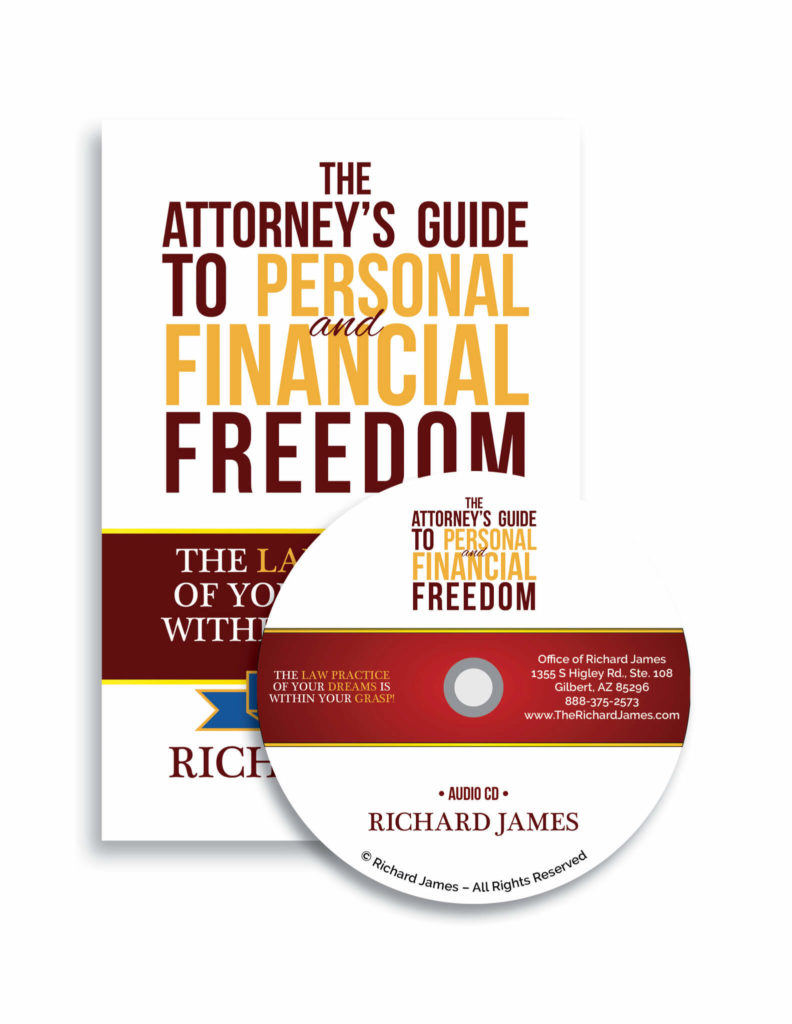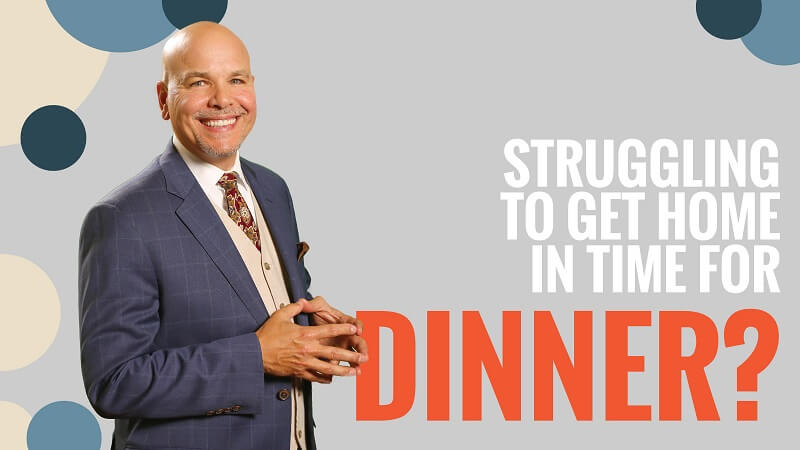During the crazy times we experienced, there has remained one consistent fact for small law firms: Salesmanship is king. Small law firms who understand this fact, win more often than law firms who do not. Now, more than ever, we must understand how to sell if we want to be successful in our business.
Two Ways to Get a Client Vested
Personal Appointments. When prospective new clients take off work, find a babysitter for their kids, find the courage to realize they are going to see an attorney, get in their car, fight rain, snow and/or blazing heat to come to see you, they are vested. When they arrive at your office, often you don’t need any more marketing activities because the sale is already made. Nevertheless, some attorneys still manage to screw it up due to underdeveloped selling techniques or management skills.
Zoom Client Meetings. When you are meeting people on Zoom or on the phone, there are very few barriers. They can call you on their lunch break, they don’t have to take the kids to a babysitter, nor do they have to get in the car, and it takes very little courage to jump on a call. So, when they arrive at you, they are not vested, and because of that, these potential customers are much more difficult to convince to retain your firm.
Here’s the ugly truth. The cat’s now out of the bag. They know you can run a virtual meeting because they know you had to during COVID-19 – everyone did. So, there will be some potential new clients, likely more than there were in the past, who want to meet you virtually.
You’re going to need to do things and improve your sales skills to get them vested in your process, but that’s a different article for a different time. Today, we’re going to talk about sales. Now, more than ever, you must become a professional salesperson.
A Client’s Dilemma: Decrease in Conversions
To understand why becoming a trained sales-rep with product knowledge and familiarity with the sales process is important, consider a real-life story I am sharing below. Partners Club Captain and past EAY Finalist, Howard Snader was experiencing a 70% decrease in his conversion rates during the initial consultation.
As his law firm consultant and analyst, I told him two things:
- First, you have to get back in the consultation room. It was nice to have staff doing this for you, but no one was going to be able to test this process to improve sales better than you.
- Two, after you’ve finished step number one, send me a recording of three of your calls.
Advice from A Legal Systems Expert
As a business management consultant and law firm expert, I submitted an email review to Howard outlining the sales tips he can follow to improve this process. Below are some of the general comments I shared with him:
Decide, if you’re going to be the Doctor or the Attorney
In the Nurse/Doctor role, the nurse is the one who sets up the call, collects the facts, provides the Doctor with the facts (easily done via google sheets), processes the payment the Doctor harvested, and reviews the agreement. On the other hand, the doctor:
- Empowers the nurse by giving credibility (never call them your “intake guy or gal” – always legal assistant or paralegal”)
- Reviews the facts about the case prior to joining the call
- Shows up to the call with a ready mindset: all software open and ready to go
- Listens to your story in their own words and tells the firm origin story
- Reviews the prospect’s options – both the BEST and WORST case scenario
- Guide them to choose the option right for them
- Shares a crystal-clear guarantee
- Summarizes the urgency and all the firm will do for them from the option they chose
- Offers the fee, and asks for the order – for example, you can say “The investment for us to do that is $7500 (that’s seven thousand five hundred dollars) – which credit card would you like to use?”
- Take payment and create a process if the client will pay using cash or credit card
- Work on a future payment plan
- Negotiate fee if that power is available to them
- Thank them for trusting
- Schedules the proper no-hire appointment (If the prospect will not commit to the payment today, with the Doctor, the Doctor must then schedule the follow-up.)
If you commit to being the Doctor, you’ll close more deals. On the other hand, if you choose to be the attorney you will:
- Come in after the sale has closed
- Review the case to ensure it was a good hire
- Give credibility to the Nurse and the Doctor
- Get the heck out of the room before they screw up the sales
Regardless of which role you choose, teamwork is essential here. The “Nurse” never interrupts nor corrects the Doctor. If they have something they want to say, they should use private chat, text messages or just hold the thought – your Nurse interrupted you twice during calls – it’s not acceptable and can be trained.
Provide clear options for your clients
You should create choices for your clients and write these options on a small whiteboard the clients can see. For example:
- Do nothing and represent yourself. If they choose this, they can experience all the bad stuff that happens. They can still get to where they want to be, but not in an organized fashion. This is where the benefit of hiring an attorney comes. If the client does not like this option, he/she can put an “X” through it
- Ask for a PD. If they have prior experience with a PD, they know, but reassure them of all the bad things. If they don’t have prior experience, you need a story that illustrates how bad it can go for a case like theirs. Again, if they do not like this option, he/she can put an “X” through it
- Retain your firm. You can state what your goals are
Give a 7-day Guarantee
A guarantee does not have to guarantee an outcome. You can simply tell them that if after seven days of working with our firm, you’re not completely satisfied with how we do business, you’ll give them 100% of the money they paid back.
Sell Advance Services
If potential clients are too concerned about the future or the courts are closed, stop selling a complete case. Sell pre-filing, pre-planning, or some other advance service to hold their place. Also, ask them to apply the value of this investment (ROI) against the total of the future case. Make the client service agreement automatically convert to a full case after seven days so you don’t have to make another sale.
Make sure to collect something, even a small payment so they can call you their Attorney. This is where I see most fee-based attorneys fail. Rather than focusing on getting paid and having sales solutions, they are focused on engagement letters or fee agreements. None of that matters if the client doesn’t make a payment. The primary goal is to collect payment during this call, even a small payment.
What Happened to the Client?
Really well. Howard made changes to his initial consultations. Some of the changes I listed he followed, and others he figured out on his own to improve the customer journey. In a mere matter of days, clients started retaining his firm again. His conversion rate went back to normal, and he nearly broke a record for new clients retained in the month of April.
Howard is a committed entrepreneur, and he did what he had to do as a sales person. Next, we’re going to get him out of the consulting room again so he can work on the business. But for now, it was up to him to show his ‘sales team’ how to get it done.
If you want to have your best month ever, become a professional salesperson. The rewards are ongoing. If you want to know how to become good in sales, contact our legal management consultant Richard James or schedule a 1-on-1 consulting to get your customized practice growth plan.
Richard James
As a result of his track record for achieving what most describe as “phenomenal” growth rates for his clients, Richard James, CEO of Automated Business Results, LLC, is quickly gaining a national reputation as “the Legal Systems Expert.” His secret to success is simple. Richard has devised a seven step system for designing and implementing automated marketing systems that grow your business FAST. If you’re looking to develop a practice that supports your lifestyle rather than completely undermining it, call Richard James today.






